
Large fleet: the success story of Vlantana from Lithuania
Business & Logistics
For Vladas Stončius, climate-friendly transportation is the key to success. This is why the managing director of the Lithuanian logistics giant Vlantana relies on combined traffic and new trucks from Mercedes-Benz.
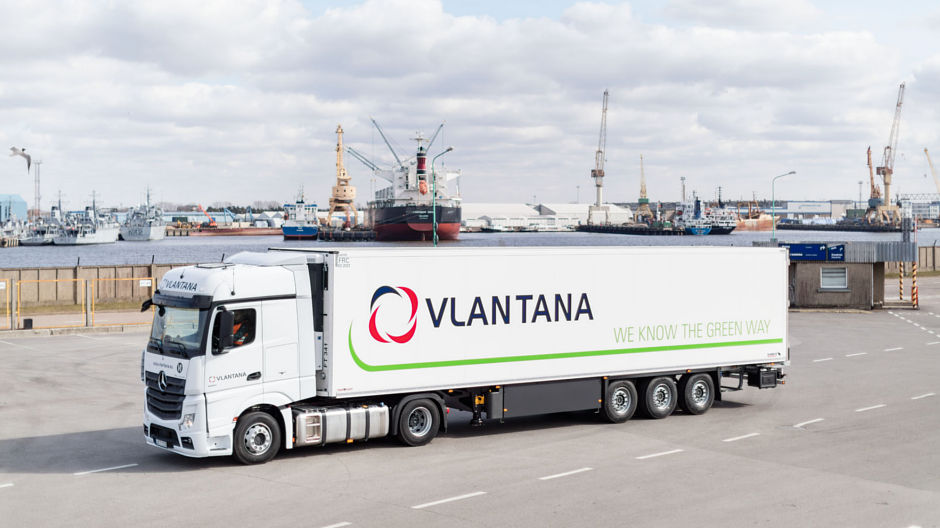
Vladas Stončius has a knack for choosing the right moment. At the end of 1991, barely a year after tiny Lithuania became the first former Soviet republic to declare independence, the trained fire fighter made a bold decision: Stončius quit his safe job, took out a loan and drove to Germany, just after the German reunion. His plan was to buy a few used trucks and establish a new transport company back in his home country. Today his company Vlantana operates almost 1,200 vehicles and 1,360 trailers. More than 600 tractor units are from Mercedes-Benz – with more to come.
“In the early 1990s we took over transport assignments from Lithuania to Russia using 15 trucks,” recalls Stončius. “Today Vlantana has become the second-largest logistics company in the Baltic States. With our 1,800 employees, we operate routes throughout Europe.”
The collapse of the Soviet Union ushered in a difficult period for Lithuania and for almost all the other countries in eastern Europe. It was not until the accession to the EU that things took a turn for the better. Lithuania, Poland and Slovakia currently register about three per cent economic growth, which puts them into the leading group within the EU.
Parts of the recipe for the success of the Baltic States are a young, well-educated population, and liberal economic policy. It is a combination that attracts many enterprises from western Europe and Scandinavia, along with their suppliers – and all their products are bound to hit the road at some point. This is just one of the reasons why logistics companies running gigantic fleets have been able to establish themselves in the Baltic States and in the countries of former Yugoslavia in just a few years. Vlantana’s success is based on the core values sustainability, safety, quality and innovation.
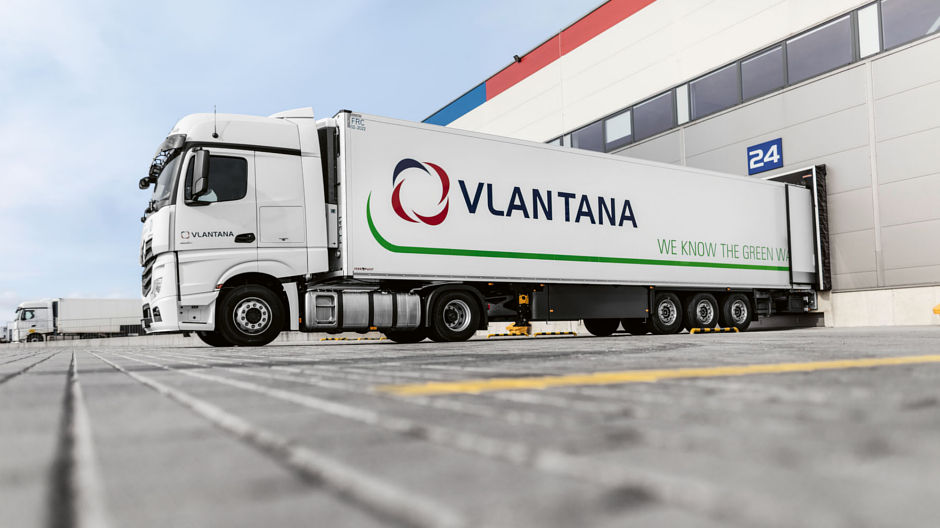
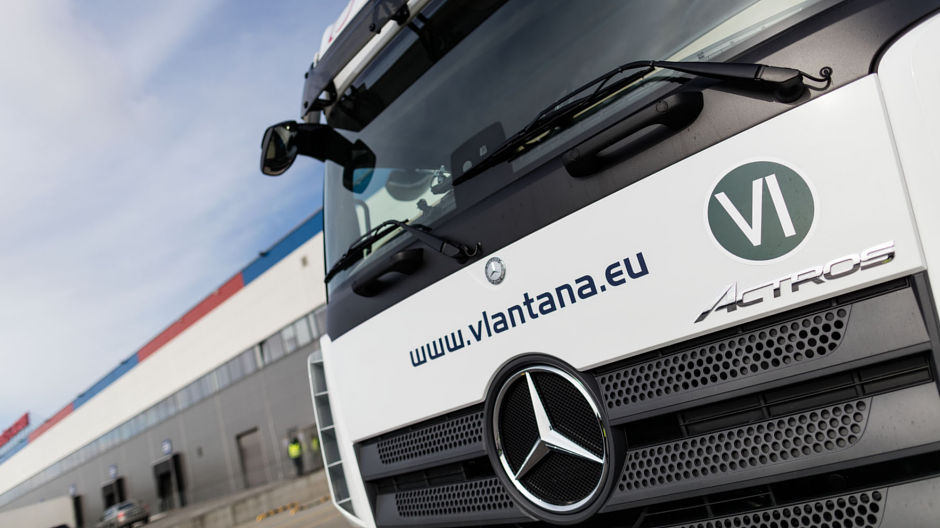
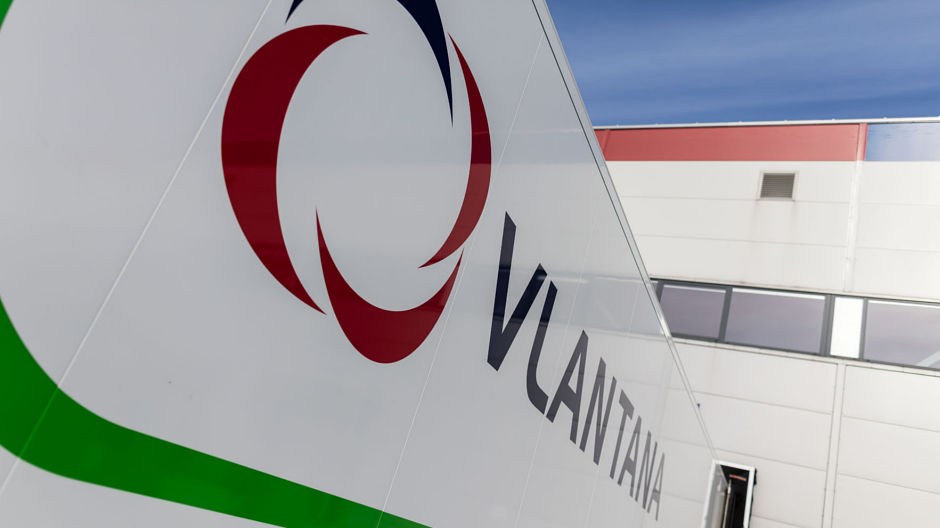
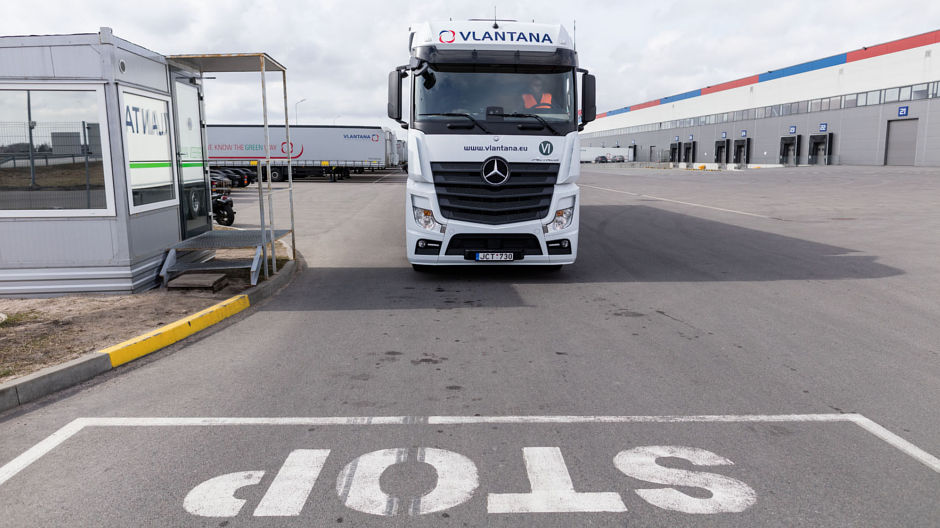
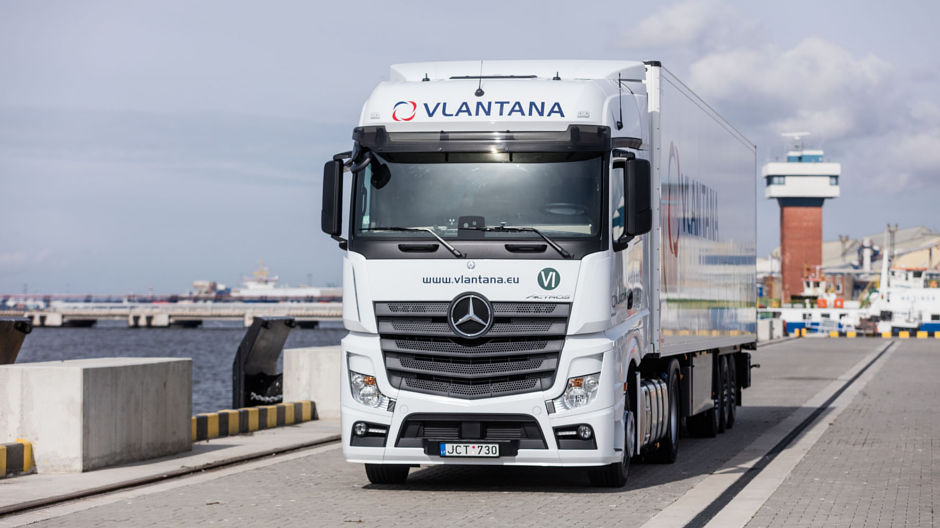
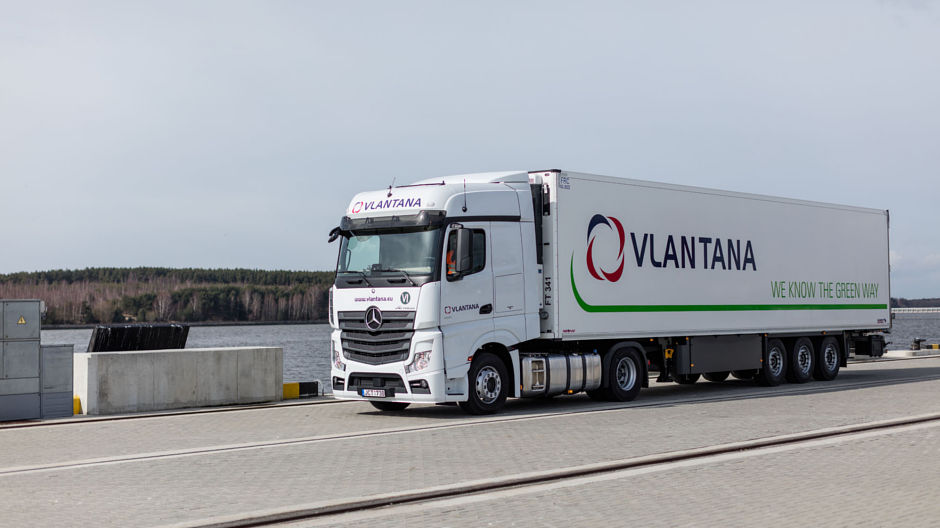
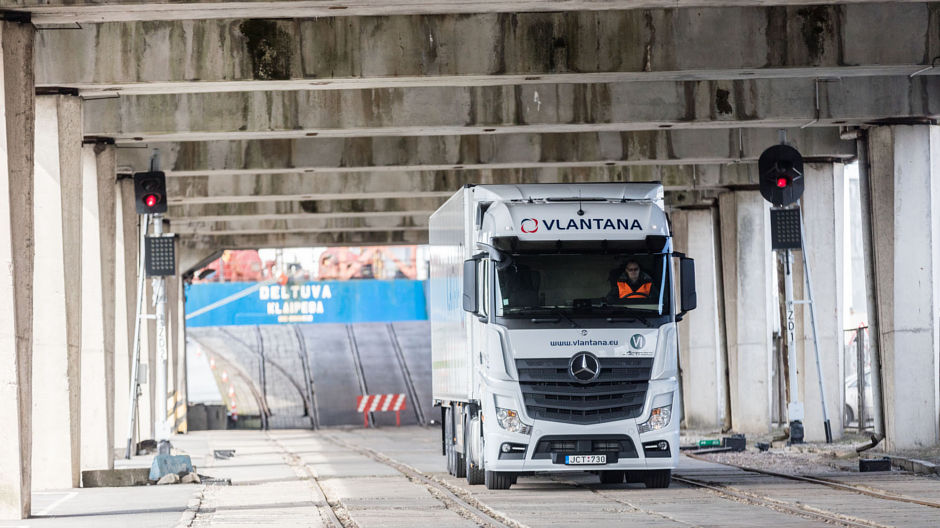
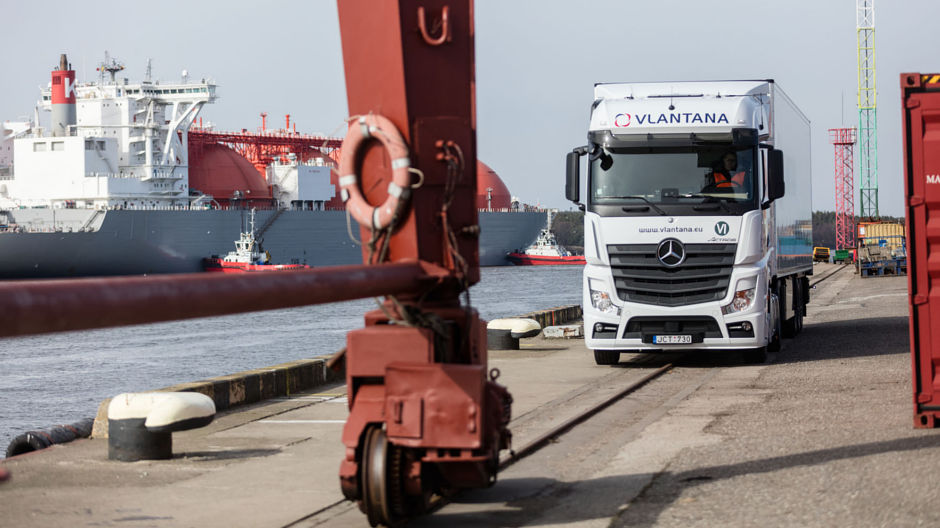
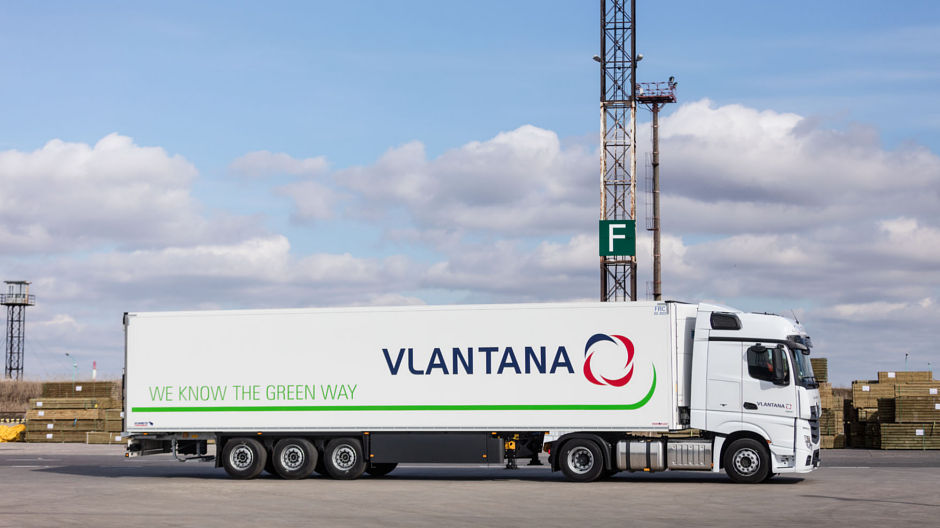
“It was our good fortune that at the beginning of the 1990s, we were able to start out as budding entrepreneurs with an empty backpack, unencumbered by any baggage, without any of the structures inherited from the past. We were then able to gradually equip ourselves with the latest technologies and process innovations,” explains Stončius. “Flexible structures, leading-edge procedures and highly networked information technology: they all result in definite competitive advantages, not only in the logistics sector.”
The Vlantana corporate headquarters, consisting of a modern glass building complex, warehouses, the company’s own driver training facility, refuelling station and workshop, lie on the outskirts of Lithuania’s port of Klaipeda on the Baltic Sea. In the course of its 25-year history, the company has come to specialise in intermodal transports from the Baltic Region to Scandinavia and Europe. Its customer base includes well-known companies, like a U.S. food giant and a major Scandinavian furniture retail chain, which manufacture many of their products in Lithuania and have them brought to western Europe by Vlantana.
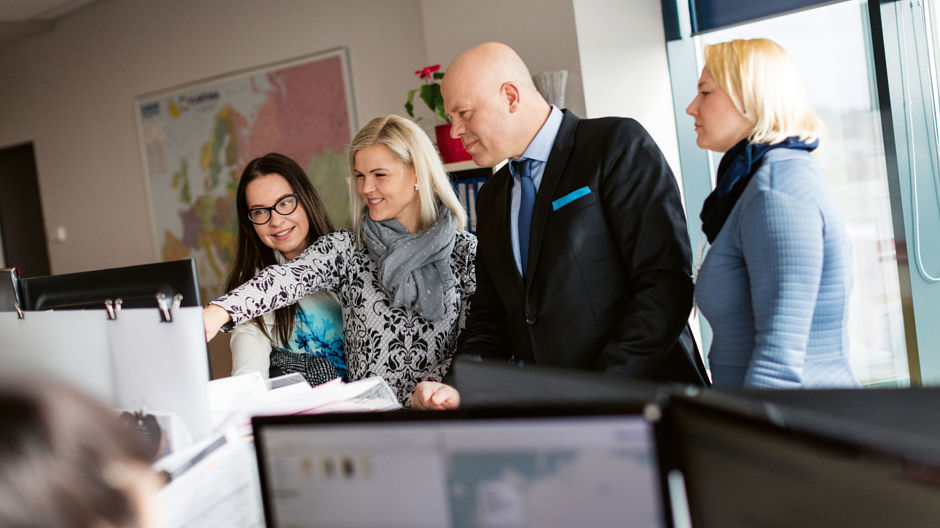
“It was our good fortune that at the beginning of the 1990s, we were able to start out as budding entrepreneurs with an empty backpack, unencumbered by any baggage, without any of the structures inherited from the past.”
Vladas Stončius, Managing Director of Vlantana in Klaipeda
To spare his drivers and their cargo the long trek through Poland, Vladas Stončius takes advantage of the ferry link from Klaipeda to Kiel. From the capital of the German federal state of Schleswig-Holstein, the Vlantana trailers are taken to Duisburg, Germany, by train – and from there they take to the road and head for destinations throughout Europe. “We operate routes from the Caspian Sea all the way to Cabo de São Vicente in Portugal,” says the entrepreneur. “Around 200 of our trucks carry freshly caught salmon from Norway down to Greece. We use intermodal transport wherever it offers the most efficient solution.”
For the 54-year-old company director, who originally hails from Palanga, a seaside resort on the Baltic Sea in Lithuania, recently presented a number of challenges. Because of the conflict in eastern Ukraine and the economic downturn it brought to big neighbouring Russia, major contracts were lost. Vlantana focused even more strongly on the West.
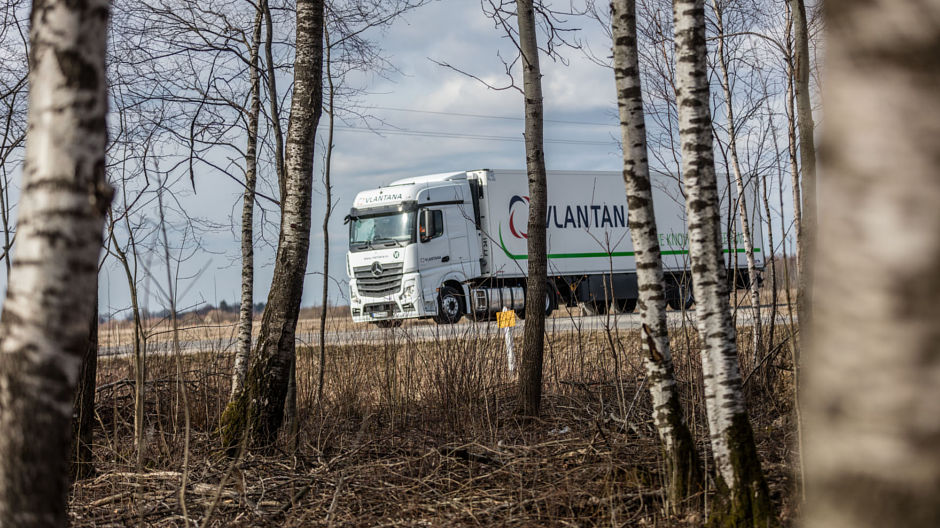
Like his competitors, Vladas Stončius is fighting every day to recruit new talent for his growing company: “Lithuania’s population is young and very well educated thanks to the large investments made in our schools and universities. Virtually everybody here is fluent in at least three languages. This is a massive gain for every company. And yet, the market for truck drivers has virtually dried up, as is the case almost everywhere else in Europe. Good staff is becoming more expensive all the time, and wages in Lithuania comply with European standards.”
Focusing on efficiency.
For this reason, Vlantana is optimising cost efficiencies in other areas in order to succeed in the tight competition. One of these areas is the fleet’s overall fuel consumption. At present the company purchases around 48 million litres of fuel for its tractor units. In future Stončius would like to achieve a significant reduction in this cost item – at the same time as growing his business. And so Vlantana is set firmly on new Mercedes-Benz trucks for the renewal of its vehicle fleet.
“By switching from the tried and proven Actros to the new model, we were able to lower the fleet’s average consumption from 32 to just under 29.1 litres per 100 kilometres,” says Vladas Stončius. “In 2016 alone 400 new vehicles have arrived, and more are on the way.”
Vlantana mainly uses two Actros models: the 1845 version as a workhorse for long-distance transportation in Europe, and 1851 version for deployment in Scandinavia. The latter has about 300 Nm additional torque compared with the 1845, and this helps it negotiate the particularly hilly terrain in Finland, Norway and Sweden with ease, even when carrying demanding loads. Both versions are fitted with the powerful OM 471 engine, the BigSpace driver’s cab, Predictive Powertrain Control, Attention Assist and Lane Keeping Assist as well as Active Brake Assist 3.
“The needs of our customers are always our main concern,” explains Vladas Stončius. “Climate-friendly transportation is particularly popular, and anyone not adapting his company accordingly will be missing out on a major opportunity and most likely won’t stand a chance trying to win contracts in the future. With the efficient trucks from Mercedes-Benz we are in an ideal competitive position for the future.”
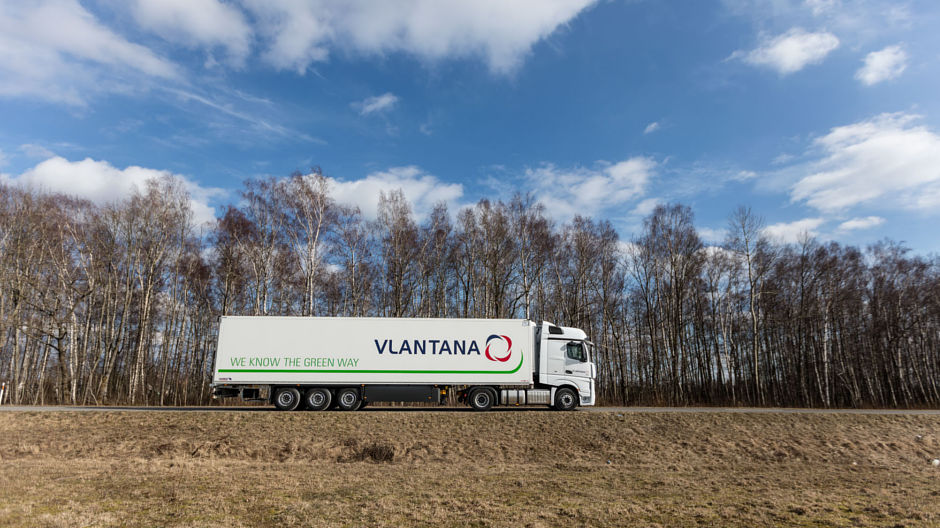
Photos: Alex Kraus



Comment
Please log in to post a comment.
No comments yet